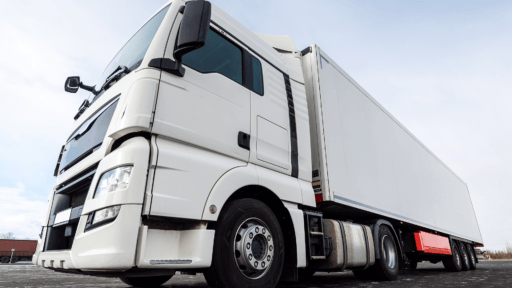Full Truckload (FTL). Essential Insights

FTL represents a cornerstone of the road freight industry, enabling the efficient transportation of substantial cargo loads over extensive distances. Herein, we delve into a comprehensive overview of this pivotal mode of cargo transport.
Understanding FTL
At its core, Full Truckload transportation involves utilizing the entirety of a truck or trailer’s cargo space to carry either a single type of cargo or a variety of goods from one shipper. This means the entire capacity of the trailer is dedicated exclusively to one shipment, without sharing space with goods from other companies.
It’s crucial to note that FTL shipments do not necessarily have to fill up the entire cargo space of the trailer, which typically accommodates 33-34 euro pallets. A shipment can be considered FTL as long as it is the sole cargo within the trailer, reserved by a single shipper.
The hallmark of FTL transportation is its direct delivery feature, ensuring that the cargo reaches its destination without any intermediate stops for unloading or loading of other shipments. This direct route significantly reduces delivery times.
Vehicles types in Full Truckload services
FTL shipments are executed using either box trucks or semir-trailers, with the choice of trailer depending on the cargo type. The most common trailer types include:
- Standard semi-trailers. These versatile trailers, whether rigid or curtain-sided, are suited for a wide range of cargo types, particularly those that do not require temperature control during transport.
- Refrigerated trailers. Designed with a rigid structure and equipped with a cooling unit, these trailers are essential for transporting perishable goods, including food and pharmaceutical products.
- Tankers. Specialized semi-trailers for transporting liquids or gasses.
- Low bed semi-trailers. Used for hauling oversized cargo or heavy machinery that exceeds the dimensions of standard trailers.
You can find more information about the types of trailers used in full truckload freight in Europe in this article.
Full Truckload. Target audience
FTL services are ideal for shippers needing to transport large volumes of goods between specific locations, whether on a regular contract basis or for one-off shipments. This mode of transportation is particularly valuable for businesses prioritizing rapid delivery and the integrity of their cargo, as it eliminates the risks associated with intermediate handling. By booking the entire cargo space, the shipper assumes full cost responsibility, making FTL suitable for those who prioritize time and safety over cost optimization.
FTL –is it sustainable?
The environmental impact of FTL transportation is multifaceted. Optimally loaded and efficiently routed shipments can make FTL one of the most sustainable options, minimizing fuel consumption per unit of cargo. However, sustainability diminishes with partially filled trucks or when vehicles return empty after delivery. Efforts to enhance the sustainability of FTL transportation include route optimization and fleet modernization with fuel-efficient or alternative energy vehicles.
Alternatives to Full Truckload shipping
For smaller shipments, alternatives include express delivery by van for 8 to 10 pallets prioritizing speed, or groupage for 1 to 6 pallets where cost efficiency is paramount. Both options offer tailored solutions based on the specific needs of the shipper.
Full Truckload transport –what you need to remember
- Logistics service for shippers sending large loads
- One shipper books the entire cargo space of a truck or trailer and can use all of it to accommodate his loads
- A service for shippers who prioritize delivery time and cargo safety over cost savings
- Sustainable service (depending on the size of the load).
Are you interested in using Coyote’s services for your FTL needs? Contact us Full Truckload quotes!